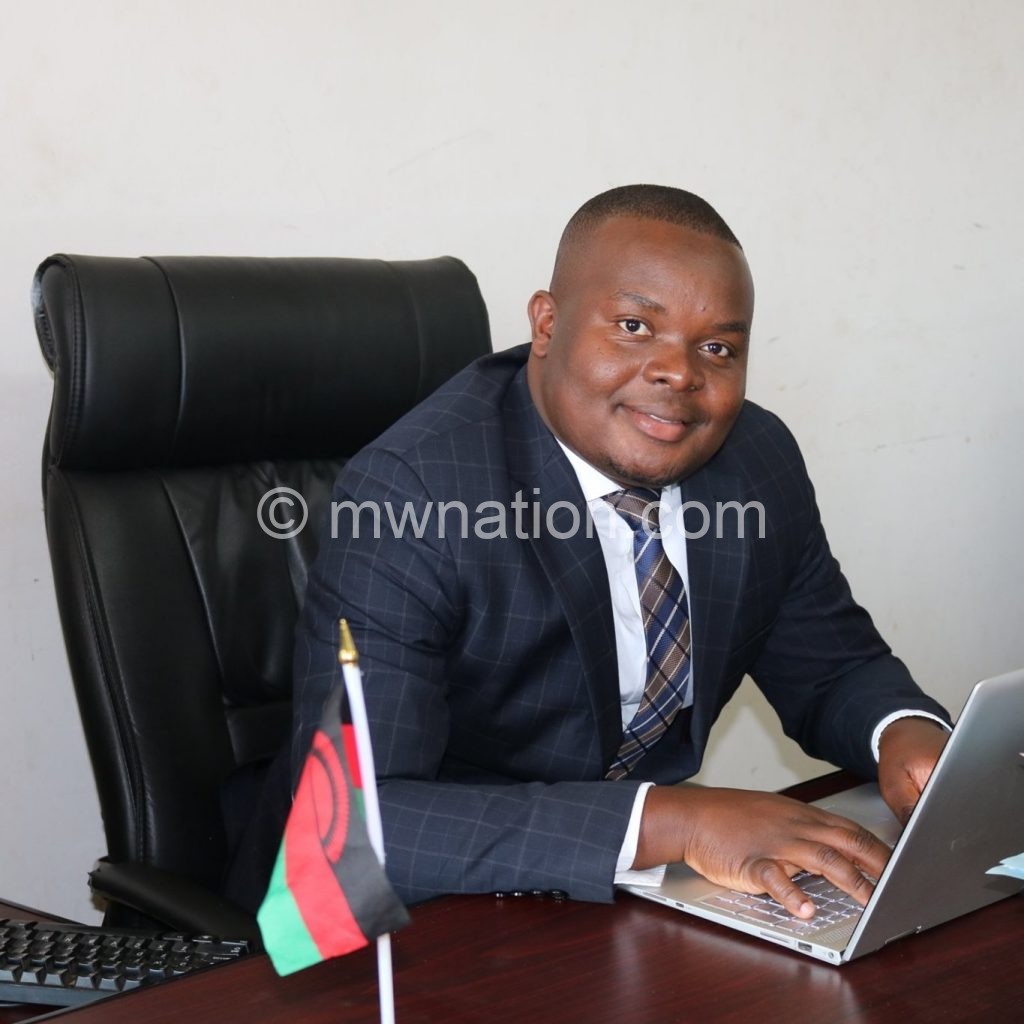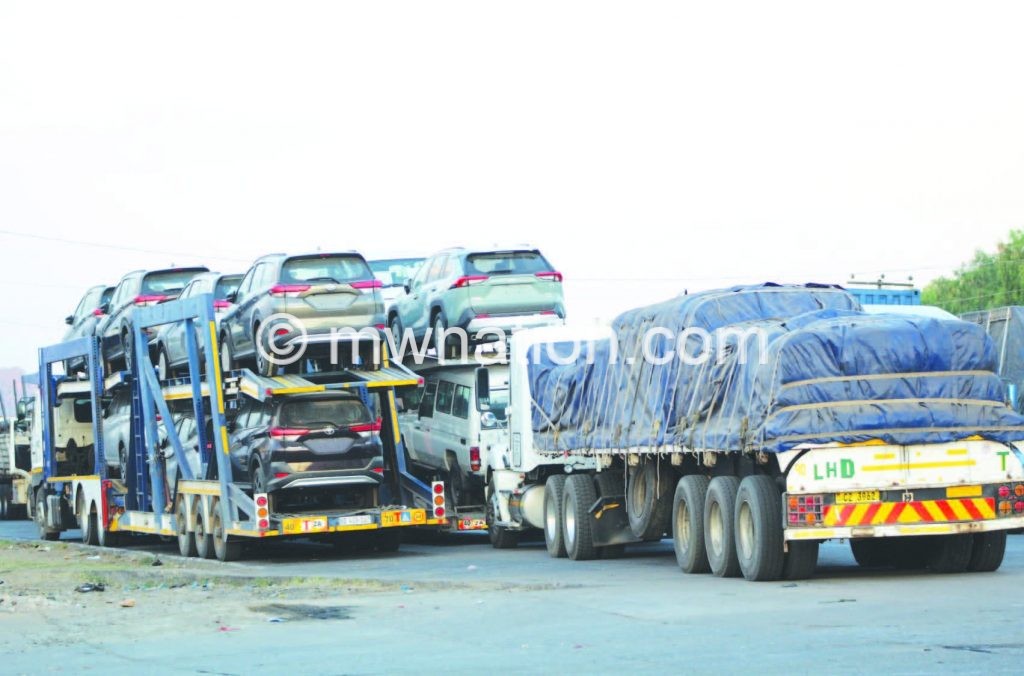Implanting trade hope amid Covid-19 monster
The Covid-19 pandemic has completely plunged the global economy into an abyss of recession.
The pandemic mirrors two other past crises, namely; the 2008 global financial crisis and the great depression of the 1930’s. The common denominator of all such crises is that they took the global economy by surprise let alone grounding the normality of such an international economic sphere.

Little did any human being on earth envisage that what started as a strictly “China disease” in November 2019 when the first Covid-19 case was registered in Wuhan Province in China-one of Malawi’s key trading partners- would fast spread like bush fire and spill into a ravaging global pandemic within a flash of a moment.
Over the years, governments all over the world, have attempted to put in place containment policies, involving restrictions on economic, personal and social lives that have fast erode the developmental gains achieved over several decades.
Such prohibitive measures have disrupted global demand and supply with spillover effects across all sectors of economies due to the inevitable phenomenon called global inter-connectedness.

From the regional lens, the Common Market for Easter and Southern Africa (Comesa) member states have not been spared and have equally suffered the adverse effects of the pandemic, actually in large proportions.
Comesa member states have over the past year imposed serious restrictions of international movements of people and tight border controls that have disrupted cross-border trade, cut linkages with global and regional value chains and reduced travel and tourism.
Internally, curfews, quarantines, closure of educational and religious institutions, sports and other entertainment activities have led to massive job cuts while severely disrupting social-cultural way of people’s lives.
Comesa is currently the largest single economic bloc in Africa with a membership of 21 Member States, a population of 586 million and a combined GDP of $805 billion as of the year 2019.
Specifically, Malawi has also not being spared from the wrath of Covid-19 pandemic as its attendant containment measures including partial lockdown and decongesting of workplaces have had significant impact on the economic performance of the different sectors of the economy including tourism and accommodation; transportation and storage services; wholesale and retail trade; and the manufacturing sector.
On an aggregate perspective, the domestic economy (using the real gross domestic product as a measure), grew by a paltry 0.9 percent in 2020, from an initial projection of 5.5 as the pandemic took its toll on the already-fragile domestic economy.
It is against all this background that the Comesa has not just sat down with its hands folded as a participant observer or spectator on Malawi. The institution has been actively making sure that both the country’s cross-border business as well as the internal business environment are still thriving amid Covid-19.
Comesa is still at the height of implementing the Simplified Trade Regime (STR), an arrangement which facilitates easy movement and clearance of goods and services by small-scale cross border traders.
“The initiative aims at simplifying clearance procedures as well as reduces the cost of trading for exporting and importing to enable small-scale cross border-traders to undertake more cross border trade,” reads the 41st Comesa Council of Ministers Brief.
The bloc is also implementing a programme aimed at reducing non-tariff barriers which supports the online reporting, monitoring and eliminating mechanism.
Malawi launched the Comesa STR with Zambia in May 2010 and with Zimbabwe allowing small-scale traders importing and exporting goods duty free for goods worth $2,000 or less.
According to Ministry of Trade Spokesperson Mayeso Msokera, the initiative is helping reducing costs for small cross border traders and increase the speed of crossing the border, even in the face of the pandemic.
He says Comesa is also implementing an internet-based online tool for reporting, monitoring and eliminating Non-Tarrif Barriers (NTBs) which must be utilised to the fullest by local traders.
“Our cross border traders can report any barriers to doing business across the region on the portal or through the Ministry of Trade for quick resolutions,” he says.
A recent Comesa report titled: “Socio-economic impacts of the Covid-19 pandemic: Evidence from Comesa region,” dated November 2020 makes it clear that Covid-19 pandemic has adversely affected both extra and intra-Comesa trade through cross-border trade, travel restrictions and lockdowns, among others.
In addition, the fall in commodity prices has also affected Comesa as oil and mineral exporters hugely have lost huge export revenues, thereby facing critical balance of payments (BoP) challenges.
According to the National Association of Business Women Executive Director Barbara Banda, 2020 would be a year not to forget for most traders as Covid-19 buried their businesses six feet under.
“We are still greatly affected as small businesses. Last year, with the partial or full lockdown, and with some borders sealed, we lost huge business,” she laments.
Malawi is also fully benefiting from the Africa Leather and Leather Products Institute (ALLPI), formerly Comesa Leather and Leather Products Institute.
With ALLPI Malawi formulated the leather value chain strategy; trained a lot of Small and Medium Enterprises (SMEs) in footwear making; supported institutions on leather standards and traceability systems; facilitated the setting up of the Leather Industry Association of Malawi; conducted a feasibility Study and drawing to setup a leather finishing tannery and also helped establish the state-of-the-art Leather Products Design Studio under the Comesa Regional Integration Support Mechanism fund, Msokera added”
The Comesa Federation of Women in Business (COMFWB) is also making sure that the country remains afloat.
Malawi’s Ministry of Trade has for so long been working in partnership with COMFWB, one of the Comesa organs that Malawi is hosting in implementing programmes that integrate women into trade and development activities in the country.
For instance, on 18th February, 2021, Malawi unveiled the 50 Million African Women Speak platform that allows Malawian business Women to engage actively with fellow women entrepreneurs in the region and access the platform as a one- stop- shop to gain knowledge on financial support, markets, and access information on how to run their businesses.
The Comesa organ also hosted the first Regional COMFWB Trade Fair in Dec, 2020, an international event which provided an opportunity to women in Business to show case their products and services and trained business women in Malawi in leadership and business management.
Generally, Comesa has a strong zeal to ensure that trade is still flourishing despite the re-emergence of exogenous shocks such as Covid-19.
Senior Trade Officer at the Comesa Secretariat Alice Twizeye is mindful of the importance of concluding negotiations on trade in services within the trade bloc in all the seven areas, amid Covid-19.
The seven identified areas include: business, communication, financial transport, construction, energy-related and tourism services.
“These have potential to enhance the development and diversification of regional services as well as facilitate an increase in Trade in Services and proactively find solutions to be competitive and trade with third parties outside the region and globally,” she said.
She spoke on September 16, 2020 during a virtual meeting, which was the 8th for the Comesa Technical Working Group on Trade in Services.
The meeting pooled together trade experts from all the 21 Comesa member states to review progress on trade negotiations between countries and to review progress towards concluding Trade in Services negotiations. The meeting considered the complexities prevailing during the Covid-19 period and provided technical and policy guidance from the member states regarding the negotiations.
As it stands now, Comesa, in collaboration with other key stakeholders such as Malawi’s Ministry of Trade, is not taking any chance to relax or allow complacency in its usual mainstream business.This has seen Malawi, as a member state, leapfrogging and accruing benefits from regional trade despite Covid-19.





